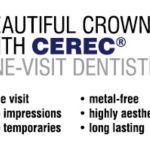How to Keep Teeth Healthy as You Age: Essential Tips for Long-Lasting Oral Health
- Why Dental Health Changes with Age
- Daily Dental Care for Aging Teeth
- Professional Dental Care for Seniors
- Nutrition and Its Impact on Teeth
- Common Dental Issues for Seniors and How to Prevent Them
- Maintaining a Dental Routine as You Age
1. Why Dental Health Changes with Age
As we age, our teeth and gums naturally undergo various changes. These changes can make it more difficult to maintain the same level of oral health as in our younger years. Our enamel, which protects teeth, thins over time, making teeth more susceptible to decay. Gums may also recede, leaving teeth exposed to harmful bacteria and plaque buildup.
Additionally, older adults may experience dry mouth due to decreased saliva production, which increases the risk of cavities and gum disease. The changes in the mouth as we age can also make it harder to keep teeth clean, which is why it's essential to adopt new dental care habits to protect oral health throughout the years.
2. Daily Dental Care for Aging Teeth
Proper daily dental care is crucial for keeping your teeth healthy as you age. Here are some essential tips to follow:
- Brush Twice a Day: Use fluoride toothpaste to brush your teeth at least twice daily, especially focusing on areas that are prone to plaque buildup, like along the gumline.
- Floss Regularly: Flossing is essential to remove food particles and plaque from between your teeth that a toothbrush can't reach. This is even more important as gum recession becomes more common with age.
- Use Mouthwash: An antimicrobial mouthwash can help control plaque, bacteria, and bad breath. It can also help prevent gum disease, which becomes more prevalent as we age.
- Consider Electric Toothbrushes: If manual brushing is difficult due to arthritis or limited dexterity, electric toothbrushes can make brushing more effective and easier to handle.
Adopting these habits daily will help you maintain good oral hygiene and prevent many common dental problems that occur with aging.
3. Professional Dental Care for Seniors
In addition to daily care, visiting your dentist regularly is essential for maintaining healthy teeth as you age. Dental check-ups for seniors are especially important for identifying potential problems early on. Your dentist can catch issues like cavities, gum disease, or oral cancer before they become more serious.
Senior patients may also need additional treatments like fluoride applications or dental sealants to strengthen weakened enamel and prevent decay. Professional cleanings are important, as they help remove plaque and tartar that build up over time and can’t be eliminated through regular brushing alone.
Regular visits to your dentist will ensure that your aging teeth stay in optimal condition and that any potential problems are addressed promptly.
4. Nutrition and Its Impact on Teeth
What you eat plays a significant role in the health of your teeth as you age. A balanced diet that is rich in calcium, vitamin D, and phosphorous will help maintain strong teeth and bones. Dairy products like milk, cheese, and yogurt are great sources of calcium, while leafy greens and fortified cereals provide essential vitamins and minerals.
Additionally, it’s important to limit sugary and acidic foods, which can contribute to tooth decay. Eating a well-balanced diet not only helps your teeth but also supports your overall health, making it easier to maintain your oral care routine as you get older.
5. Common Dental Issues for Seniors and How to Prevent Them
Seniors face unique dental challenges, but with the right approach, many issues can be prevented or managed effectively:
- Tooth Decay: With age, teeth become more vulnerable to decay due to enamel erosion. Regular brushing, flossing, and fluoride treatments can help prevent decay.
- Gum Disease: Gum recession and periodontal disease are common in seniors. Proper oral hygiene and regular dental visits can help prevent gum disease.
- Dry Mouth: Dry mouth is a common condition among older adults, often caused by medications. Drinking plenty of water and using saliva substitutes can help manage dry mouth.
- Tooth Sensitivity: As gums recede, tooth roots may become exposed, causing sensitivity. Using toothpaste for sensitive teeth and avoiding acidic foods can alleviate discomfort.
By staying proactive and following preventive measures, you can minimize the impact of these common dental issues and keep your teeth healthy throughout your life.
6. Maintaining a Dental Routine as You Age
Maintaining a consistent dental routine is crucial for preserving your oral health as you age. This includes not only brushing and flossing but also scheduling regular dental check-ups, watching your diet, and addressing any emerging dental issues early on. Taking a few extra steps to care for your teeth will pay off in the long run, helping you to avoid complex procedures and maintain your smile well into your later years.
If you’re looking for professional dental care to support your oral health as you age, Dentistry Toothtruth offers expert services to help you maintain your teeth for life. From routine cleanings to specialized treatments, we’re here to help you keep your teeth healthy and strong. Learn more today!







 Kid's Choice Dental - Tacoma4.0 (232 review)
Kid's Choice Dental - Tacoma4.0 (232 review) Motto Clear Aligners0.0 (0 review)
Motto Clear Aligners0.0 (0 review) Robison Dental Group4.0 (197 review)
Robison Dental Group4.0 (197 review) North Park Family Dental: Dr. Michelle Kline4.0 (25 review)
North Park Family Dental: Dr. Michelle Kline4.0 (25 review) Bellingham Dental Arts4.0 (27 review)
Bellingham Dental Arts4.0 (27 review) Smile Care Dental Associates: Dilip Patel DDS4.0 (5 review)
Smile Care Dental Associates: Dilip Patel DDS4.0 (5 review) The Importance of Oral Health Education During Pregnancy for a Healthy Pregnancy
The Importance of Oral Health Education During Pregnancy for a Healthy Pregnancy Best Tips for Brushing Your Teeth Properly for Healthy Gums: Essential Techniques for Oral Health
Best Tips for Brushing Your Teeth Properly for Healthy Gums: Essential Techniques for Oral Health Why Skipping Dental Checkups Can Lead to Bigger Oral Health Problems
Why Skipping Dental Checkups Can Lead to Bigger Oral Health Problems Advantages of Porcelain Dental Restorations
Advantages of Porcelain Dental Restorations How Can Diabetes Cause Tooth and Gum Problems? Preventing and Managing Oral Health Issues
How Can Diabetes Cause Tooth and Gum Problems? Preventing and Managing Oral Health Issues Healthy Habits for Promoting Good Oral Health and Hygiene: Tips for a Healthy Smile
Healthy Habits for Promoting Good Oral Health and Hygiene: Tips for a Healthy Smile